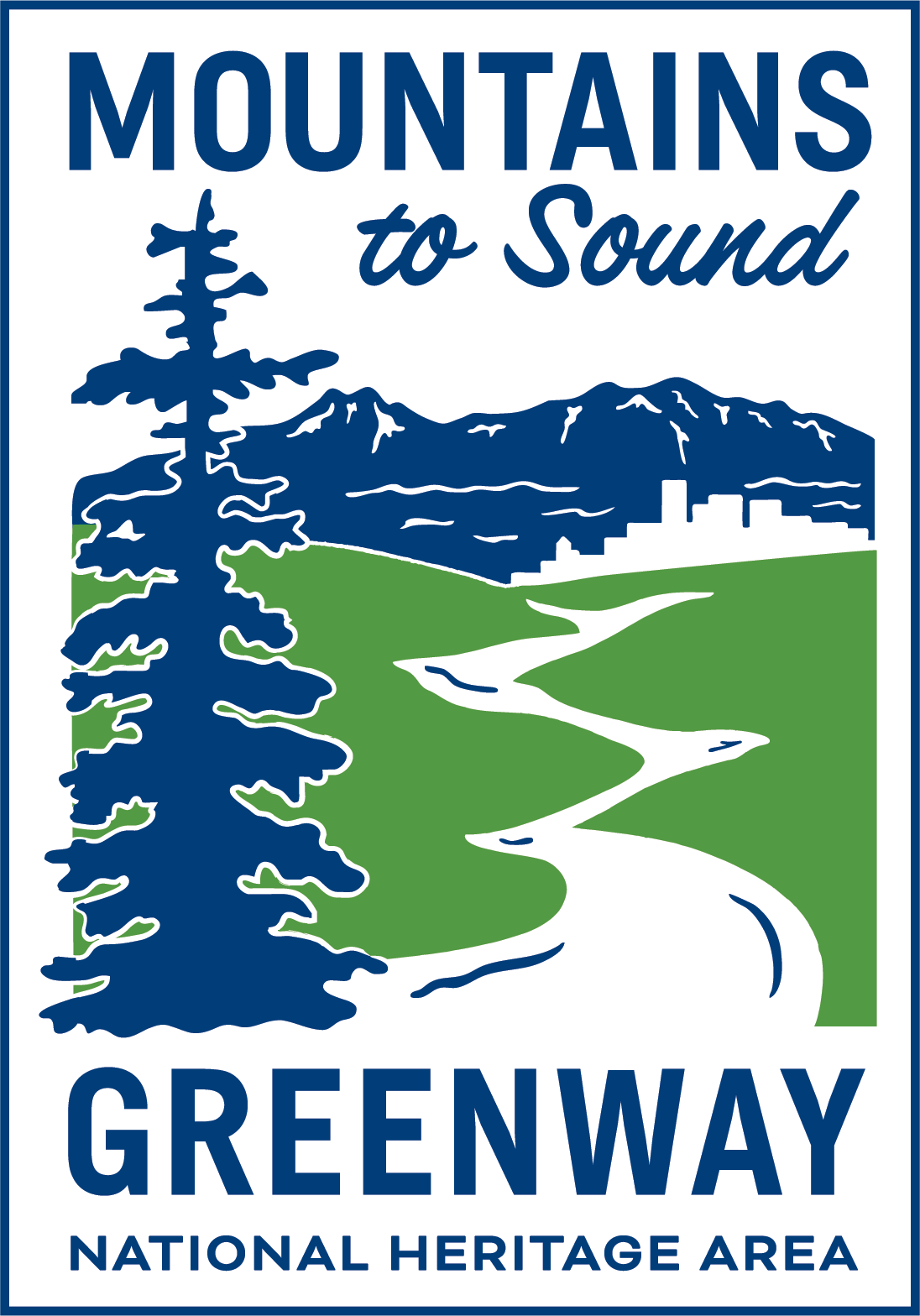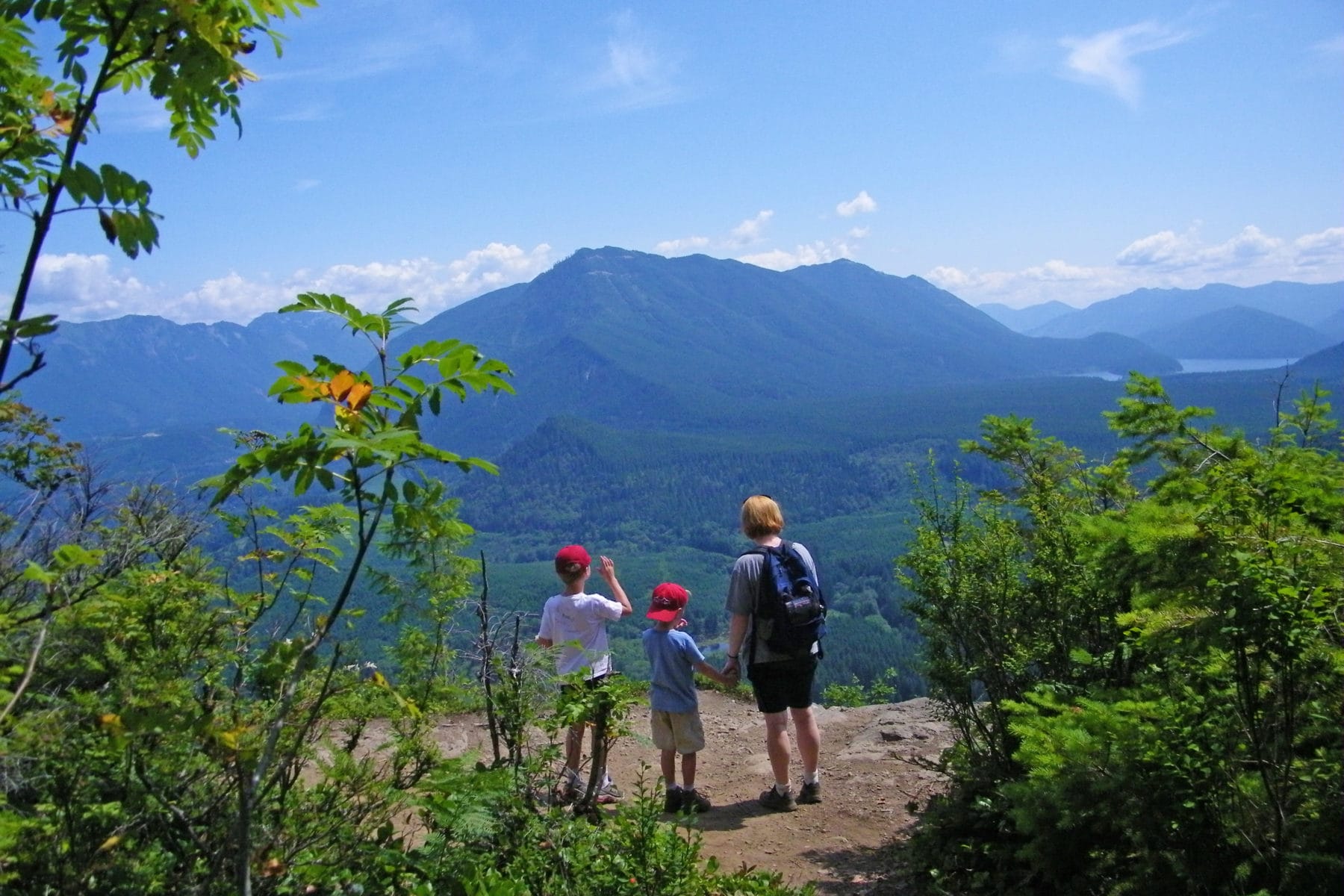Trekkers thank Senator Cantwell
When hikers on last month’s 25thAnniversary Mountains to Sound Greenway Trek finished traversing Rattlesnake Ridge, they arrived at beautiful Snoqualmie Point Park, with its timber-frame overlook surveying the expansive scenery of the Snoqualmie Valley and surrounding peaks. When they arrived, they did something abnormal; they sat down and wrote thank you notes. The people on this Trek knew something that most people who drive up to the Park, or use the nearby trailhead may not know: that without a timely investment by the Land and Water Conservation Fund (LWCF), this spectacular site would have been paved over and inaccessible to the public.
In the late 1990s, a plan surfaced to develop eight office buildings on the site, which had once been a winery and later was zoned for industrial development. The efforts of a wide variety of stakeholders culminated in obtaining LWCF funding to establish the park in 1999. A little-known federal program, the Land and Water Conservation Fund, has been working for the last 50 years to conserve our natural treasures and make sure these places remain open for everyone to enjoy. Unfortunately, LWCF will expire this September unless Congress acts, which means no similar funding sources would exist for future conservation initiatives. Thankfully, Senator Maria Cantwell, a leader on Energy and Natural Resources issues for the Democratic Party, has been working hard to ensure that won’t happen.
It was these new efforts by Senator Cantwell that the Trekkers were applauding in their thank you notes. Senator Cantwell has introduced legislation that would permanently reauthorize LWCF, ensuring that this great program is around to help citizens improve their communities in the future.
Since 1990, the LWCF has helped conserve more than 80,000 acres in the Greenway. When Trek participants biked and hiked from Ellensburg to Seattle, they passed dozens of sites that received funding from LWCF, like Lake Sammamish State Park, the Pacific Crest Trail, the Alpine Lakes Wilderness, and the Middle Fork Snoqualmie River Valley. Public access to these popular recreation areas might have been lost if it weren’t for the investments made by LWCF. And the job is not done yet.
Many public parks and natural areas still have sizeable holes in ownership that hinder access and land management, our regional trail network still has significant gaps that interrupt travel corridors, and lots of local parks need additional investments to create welcoming facilities. The past successes of LWCF are monumental, and so are the future needs. That’s why reauthorizing LWCF is important. Our congressional delegation deserves our gratitude for working hard to reauthorize LWCF and protect our natural heritage for generations to come.
To learn more about LWCF visit lwcfcoalition.org and sign the petition.





